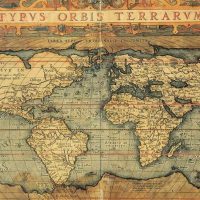Category: History Essay Examples
See our collection of history essay examples. These example essays are to help you understanding how to write a history essay. History is a fascinating puzzle with both personal and cultural significance. The past informs our lives, ideas, and expectations. Historians study the past to figure out what happened and how specific events and cultural developments affected individuals and societies. Also, see our list of history essay topics to find the one that interests you.
Native Americans in North America had an enormous range of customs prior to the coming of Europeans. Their ancestors had first migrated into North America from Asia more than 10,000 years ago, hunting the huge herds of giant ice age mammals. As they spread throughout the continent, Native …
The reputation of Nebuchadnezzar II abounds in the ancient world, as he represents one of the most famous of the Near Eastern monarchs. No fewer than four books of the Jewish scriptures, 10 rabbinic commentaries, six books of the Pseudepigrapha and the apocrypha, several Arabic commentaries, and many …
The Neolithic age followed the Paleolithic age and Mesolithic (or Epipaleolithic) as the last era of the Stone Age of human prehistory. Homo sapiens (the modern human species) experienced the Neolithic age; late-surviving relatives such as Homo neanderthalensis and Homo floresiensis died off in the Upper Paleolithic. Its …
Neoplatonism is the modern name for the last school of pagan Greco-Roman philosophy. It flourished from 200 to 550 c.e., when its last teachers died; however, the influence of Neoplatonic doctrines continued in the teachings of Christian, Jewish, and Muslim philosophers. The influence of Neoplatonism in the Middle …
The fifth and final of the Julio-Claudian emperors, a dynasty founded by Augustus Caesar, Nero Claudius Drusus Germanicus reigned for the last 14 years of his life, succeeding his mother’s uncle Claudius. Although a patron of the arts, his reign is remembered as one indicative of the decadence …
Nestorius is the bishop associated with the Assyrian Church established in the realm of the Persian Sassanid Empire. Nestorius has been called a heretic, but most likely his theological rivals misunderstood him; moreover, he is sometimes viewed as the father of the Assyrian Church (Nestorian Church), but his …
New Comedy refers to ancient Greek theatrical comedies created and performed during the era in which the Macedonians ruled Greece—roughly 320–260 b.c.e. The revolutions in lifestyle of this period facilitated a change in entertainment. The characters in these comedies were typically drawn from the masses of everyday people, …
This era has been called “Egypt’s Empire,” when Egyptian armies reached and crossed the river Euphrates in the north and marched deep into Nubia. The rulers of the Eighteenth Dynasty (1550–1295 b.c.e.) pursued a policy of vigorous expansion, creating an empire that the pharaohs of the Nineteenth Dynasty …
Christianity in the early fourth century c.e. was a complex spectrum of beliefs, whose adherents were faced with the additional problem that their religion was illegal in the Roman Empire. Constantine the Great recognized Christianity as a legal religion in 313 c.e. in the Western Roman Empire. With …
For all of the attention Nineveh receives in the Jewish Bible, it was not the capital of Assyria until the last few decades of the Assyrian Empire in the seventh century b.c.e. The earliest biblical reference to the city is in the first few chapters of the book …
Egypt provides the earliest historical record of northern Sudan, the land of Kush at the First Cataract. The Egyptian name for Nubia was Kush, meaning “wretched.” Kush encompassed modern-day northern Sudan and southern Egypt. Nubia was the place where African and Mediterranean civilizations met. Nubia was sometimes under …
Odovacar was the chief of the Heruli tribe of Germans and possibly a member of the Sciri tribe who lived in the Carpathian Mountains in the early fifth century c.e. and were defeated and integrated into the Ostrogothic tribal confederation. His name is probably made of the Germanic …
The Olmec thrived in the Gulf of Mexico coastal lowlands (in the present-day Mexican states of Veracruz and Tabasco) from around 1500 to 400 b.c.e. The Olmec are one of several interrelated but largely independent cultural formations developing in Mesoamerica during roughly the same time period. Together with …
The Olympic Games of the ancient world were one of four athletic competitions associated with four ancient Greek religious celebrations. In addition to the Olympic Games, which were held every four years in Olympia in honor of Zeus, these athletic competitions included the Nemean Games, held every two …
The cluster of ancient churches that were not in agreement with the councils of the Greek Church and the Latin Church are often referred to corporately as the Oriental Orthodox Churches. These churches include the Coptic, Ethiopian, Armenian, Malankara, Eritrean, and Syrian churches, because these do not accept …
Origen of Alexandria represents one of the most fascinating yet controversial figures of the early church. Specific details of Origen’s life are somewhat ambiguous, and we must rely largely on the efforts of the fourth century historian Eusebius. Origen was born around 185 c.e. in Alexandria and lived …
Ostracism was a well-established practice used in classical Greece during the fifth century b.c.e. to banish public figures from the city. Created by Cleisthenes, it was used in Athens for the expulsion of Hipparchos in 488–487 b.c.e. Ostracism represented a ritual and symbolic course of action. Far from …
The Ostrogoths and Lombards were Germanic barbarians who successively became rulers of post-Roman Italy. The Ostrogoths were the eastern branch of the Gothic peoples, the western being the Visigoths. They first settled in the area of the Ukraine. An early Ostrogothic king, Ermanric, was defeated and conquered by …
Paideia is an ancient Greek system of education designed to show young people how to become an ideal citizen, to strive toward nobility of character, excellence of spirit, usefulness to society, and to exercise the body properly. Most important, it instructs one in how to be the highest …
For three generations the Leakey family has been pioneers in the field of paleoanthropology, seeking to uncover the origins of human beings. Louis Leakey (1903–72), who was born in Kenya, started exploring remains of human ancestors in East Africa in the 1930s. Experts, according to conventional wisdom, believed …


